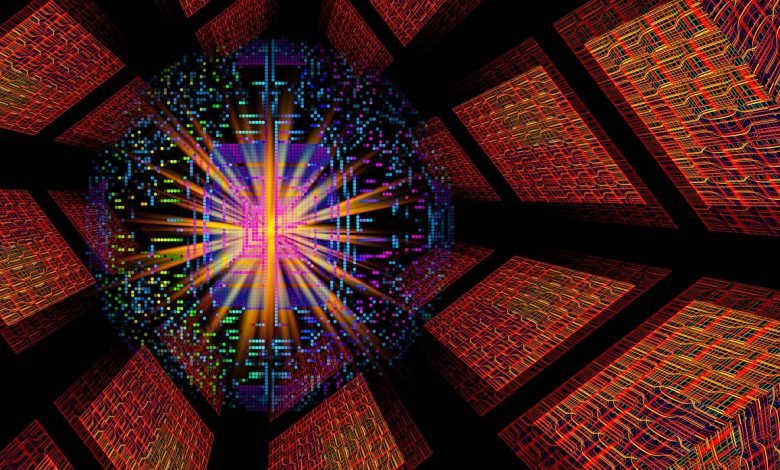
A mechanical slot machine is something that many who work in the field of probability will feel like they can understand. A series of drums with different symbols is spun and then stopped according to the commands of a microprocessor, which is programmed to ensure fair play and randomness. The fact that we can see the drums moving and revolving, often taking different amounts of time to settle, gives us a higher degree of confidence than if the result simply flashed up before our eyes.
This, in a nutshell, is the issue that online slot machine games face. All of the titles in this genre have to face a steeper uphill battle when it comes to proving to their audience that they offer a fair experience. The fascinating thing is that everything is done using algorithms — systems that many of the uninitiated think of creating order from disorder.
The Importance of Fairness
The first point we need to consider is that for an online slot machine to become popular, it has to be seen as fair. Players know that they stand to lose their money if they play long enough, but they don’t want to play in good faith only to later find out that the game was rigged against them. Responsible players deserve to be able to play in a setting that is fair and in which the playing field is level to the point where it is worth testing their strategies against the odds.
One of the issues with fairness is that it is something that is closely related to transparency — how can anything be fair if you’ve never been shown how it works and what is going on? Pension funds can only take money from depositors when they clearly outline the risks involved and the funds that they themselves are invested in. This seems like good and fair practice, and yet in the world of the casinos, the process by which the symbols and patterns are shown is top secret. If they were publicly known, there would be no point playing as the games would not be economically viable and would therefore not offer any prize money. But because they are not publicly known, a more nuanced approach to fairness has to be developed — one that works independently of transparency.
Randomness & Apparent Randomness
Take a game like Fruit Party 2, for example, and consider the classic layout that it offers. The symbols, graphics, and methods of playing are all familiar to anyone with a passing knowledge of slot machines. This level of familiarity is there in part to breed confidence in the honesty and integrity of the game, and in part because it has been shown over many years to be an effective way to draw people in to play. But what would happen if two new players opened their apps for the first time side by side and looked at both screens simultaneously?
While a physical slot machine can obviously only be played by one person at a time, there is technically no upper limit to how many people can be playing the same online slot right now. The first player may be playing in isolation, happy that the randomness they see on their screen is a good match for a real-life slot machine. And yet, if they were to look at the spins on their friend’s screen, could they see the exact same series of results? And if they did, why not just play one spin behind them so that they always knew what to do next?
This is an example of apparent randomness, and it’s apparent randomness that needs to give way for online slot machines to be functional at scale. Other examples would be patterns of play that eventually repeat, taking on a cyclical nature that allows them to become predictable when played enough. Fascinatingly, this can be defeated by the use of algorithms.
Algorithms As Tools For Consistency
Random number generators are the algorithms that lie at the heart of online slots, and are not to be confused with other classes of algorithms that will be touched on in the next section. The key point to note here is that random numbers can be generated in two main ways, both of which are 100% unpredictable:
- Pseudo-random number generation uses things like the digits of irrational numbers, like the square root of two or Pi, to create a continual stream of non-repeating digits
- True-random number generation goes a step further and uses chaotic physical processes, sometimes even probabilistic quantum events, to generate numbers
The point here is that while algorithms are often thought of as pathways that take inputs and give pre-determined outputs, they can also be chaotic. Chaos, in the mathematical sense, is characterised by a deterministic output that cannot be predicted in advance. The result will always be a definite number or a position on a slot machine drum, but the mathematics of chaos means that it cannot be predicted. With this in mind, we then need to think about how such chaos can then be turned back into order so that a playable game is the end result.
Achieving Order From Disorder
The chaotic disorder of a never-ending, never-repeating stream of digits has to be mapped onto an engaging user interface for the endeavour to be successful. The issue here is actually easier to solve than you may think, and this is because of the discrete nature of slot machines. Each drum has a finite number of symbols, and each machine has a finite number of drums. Assuming there are 10 symbols on a drum, and three drums per machine, the software simply needs to take the last three digits and stop the drums accordingly.
For this to work on a consistent and fair basis, the numerical value assigned to each symbol and each drum must be fixed. Because the raw data is randomly distributed, there is no need for the way that it is assigned to the symbols displayed on the user interface to also be random. In fact, doing so would reduce transparency to the point that players would rightfully begin to lose trust in what they are seeing. By making sure that a chaotic series of digits is mapped in a consistent, predictable way, this second class of algorithms is able to create order from disorder.
Do Patterns Ever Emerge?
Now, you may think that the fact that order has begun to emerge means that patterns will soon follow. Surely order implies some sense of repetition, symmetry, or sequencing, and it’s just that we haven’t yet observed the system for long enough to see what is really going on? While this is a common school of thought, it’s important to note that it is also incorrect, for it misses the final piece of the puzzle.
A particular set of digits created by the player playing the game must always result in the same set of symbols being displayed on the screen, but the digits are random. Even if you knew which numbers represented which colourful symbol in Fruit Party 2, you would still be none the wiser about what your next move should be because you wouldn’t have the ability to predict which numbers will come on your next turn.
A Shift To New Playing Pathways
Those who are curious to know more about how online slot machines work will also be interested to know about some of the new mathematical techniques that are being implemented. Sites like Bitcasino are rolling out cryptocurrency games that use blockchain technology to secure their new payment methods. What will be interesting is how developments like this change the way that randomness is approached. For example, would there be value in storing payments on blockchains and in training emerging AI superintelligence bots to scan for errors or patterns during live play? Time will tell with this one, but it will certainly be an area we’re going to be watching closely in the months and years ahead.
Final Thoughts
The more that you start to think about randomness and patterns, the more the two feel like they should overlap. We have evolved to spot patterns and seek out repeatable events, and yet now we’re chasing the exact opposite as the basis for a new form of entertainment. It’s a subject that never ceases to amaze when you start to look at the nuances and fine details.


